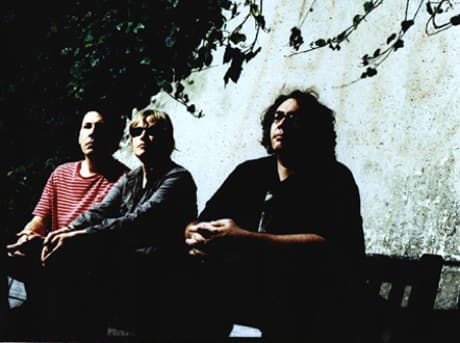Even a band as restlessly experimental as Yo La Tengo has to reach a plateau at some point. By now, fans of the quintessential "indie" band know what to expect on their albums: a pretty, string-assisted, mid-tempo pop song here, a quietly up-tempo, gentle, drum-driven ditty there and at least one elegant, groove-laden epic that surpasses the five-minute mark. However, despite the fact that "Is That Enough," "Stupid Things" and "Before We Run" fit these archetypes perfectly, Fade is anything but a retread. The band's 14th record finds Yo La Tengo settling into a late career renaissance that revisits the timbre of some of their best records (especially the quiet grace of And Then Nothing Turned Itself Inside Out) without rehashing them. That no other musicians working today sound quite like Yo La Tengo speaks to the distinctiveness of their sound.
Yo La Tengo have been releasing albums for almost 30 years now. Does being a band for that long complicate writing new music or make it easier?
Singer/guitarist/pianist Ira Kaplan: It may come a little easier; I think we've got more perspective. When things aren't going particularly smoothly, there's a tendency to panic or overreact to that [which we've outgrown]. I think we work better now than we used to, which years of experience have helped with. I don't necessarily think of [having a history] as a drawback; I think that's a challenge.
Do you hold your new albums up to your old ones?
Not specifically, no. The old records don't really exist for us — the songs do. We play the songs live, but we don't listen to the records. I think the songs have warped, in our memory, into a collection the way we play them live. Sometimes, if we're in a scenario where we hear a song from one of the old records, what it sounds like is usually a surprise.
Yo La Tengo have been releasing albums for almost 30 years now. Does being a band for that long complicate writing new music or make it easier?
Singer/guitarist/pianist Ira Kaplan: It may come a little easier; I think we've got more perspective. When things aren't going particularly smoothly, there's a tendency to panic or overreact to that [which we've outgrown]. I think we work better now than we used to, which years of experience have helped with. I don't necessarily think of [having a history] as a drawback; I think that's a challenge.
Do you hold your new albums up to your old ones?
Not specifically, no. The old records don't really exist for us — the songs do. We play the songs live, but we don't listen to the records. I think the songs have warped, in our memory, into a collection the way we play them live. Sometimes, if we're in a scenario where we hear a song from one of the old records, what it sounds like is usually a surprise.
